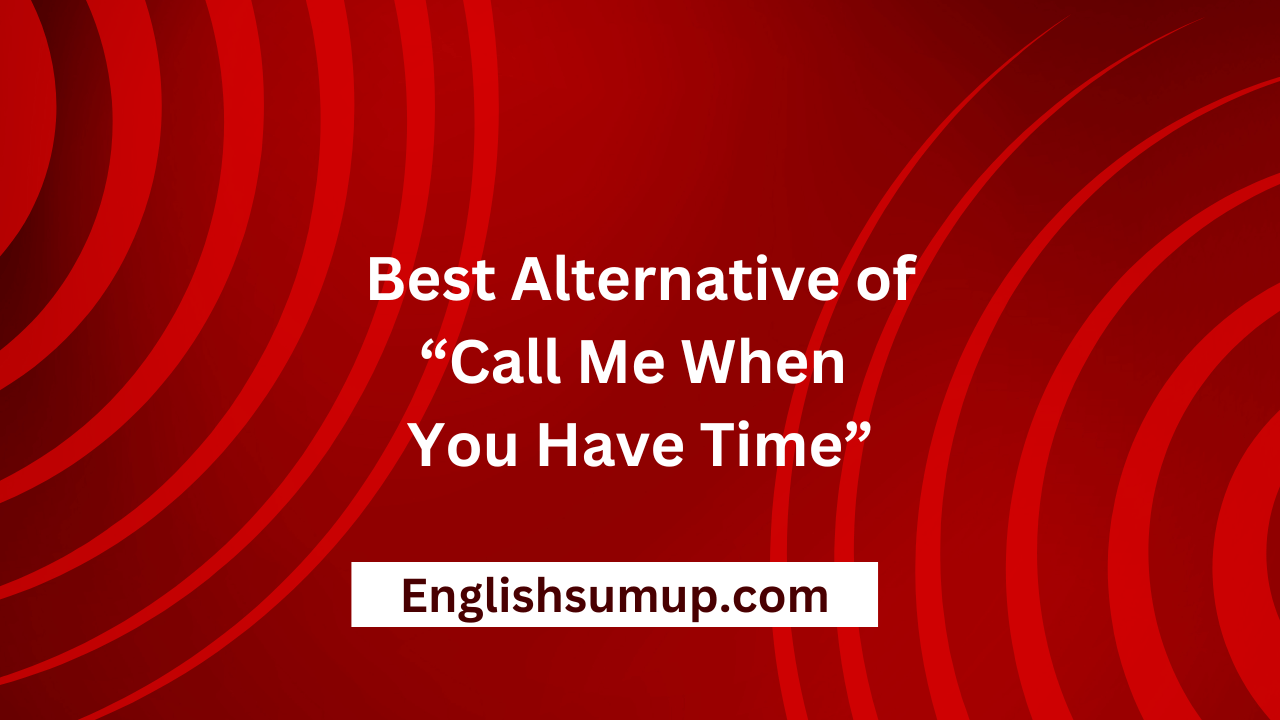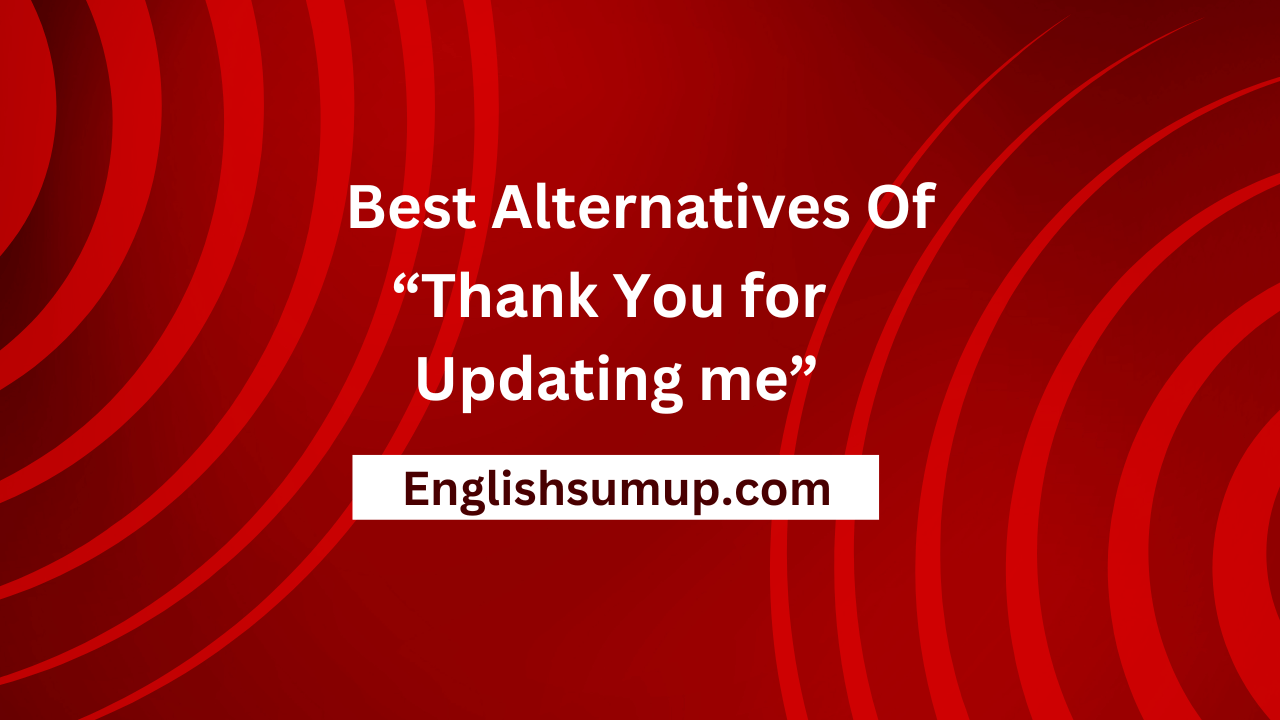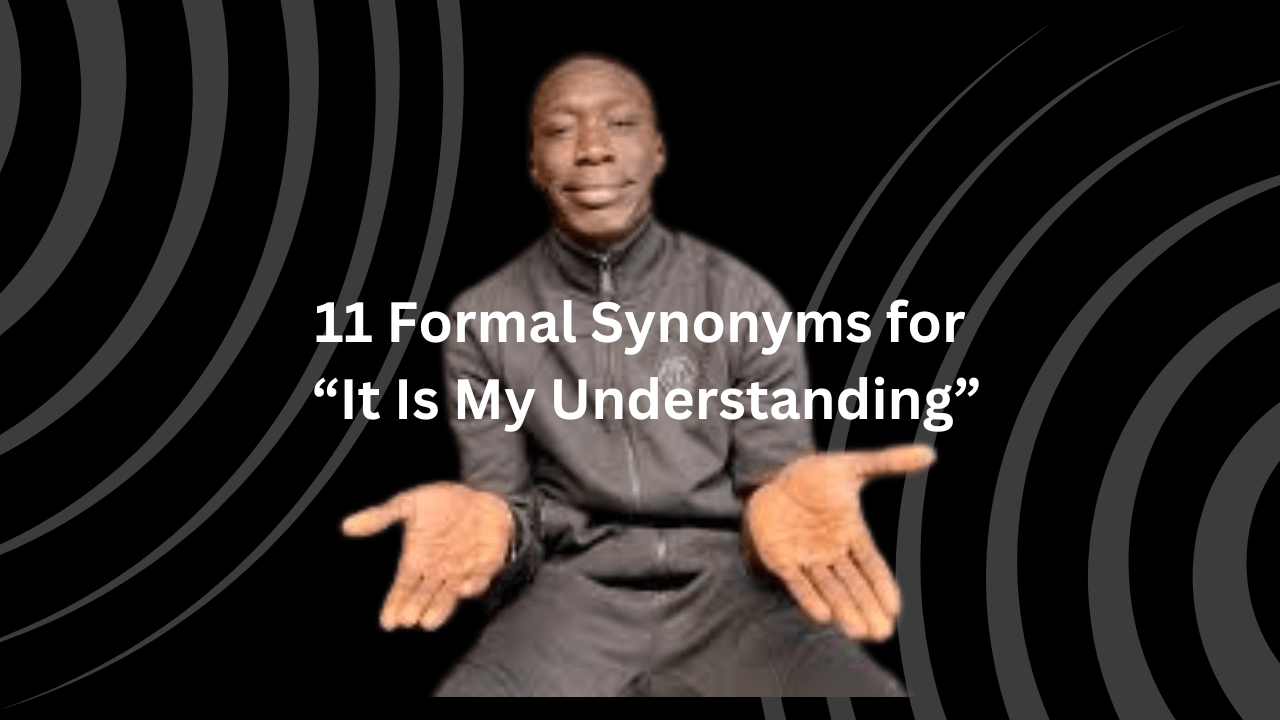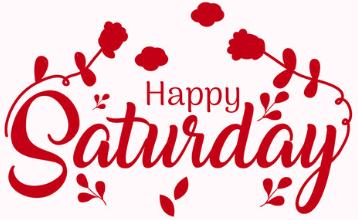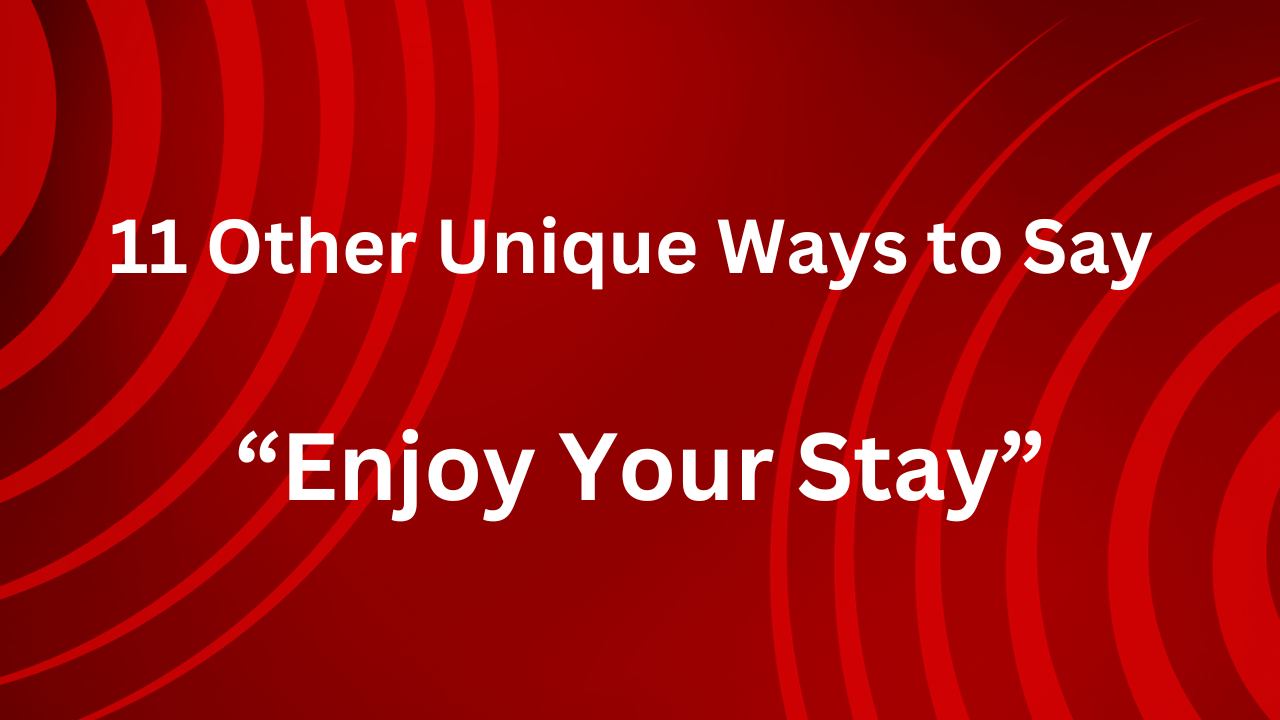Navigating the opportune moments for a conversation can present its challenges. The phrase “Call me when you have time” serves as a courteous way to gauge someone’s availability before initiating contact.
Yet, does it align with a professional tone? This article delves into the exploration of formal alternatives, offering synonyms that possess a polished and business-appropriate essence, ensuring effective communication in various contexts.
Is It Professional to Say “Call Me When You Have Time”?

Expressing the desire for a conversation with the phrase “call me when you have time” is indeed considered professional, showcasing a willingness to accommodate the other party’s schedule for a phone discussion.
This phrase finds its ideal placement in formal emails, signifying a level of respect and politeness. Its versatility makes it a safe choice in most written cases, ensuring a courteous tone in professional correspondence.
Consider the following example:
“Please, call me when you have time. I’d like to hear more about this situation.”
Pros:
Politeness is inherent in the phrase.
Demonstrates respect for the other person’s busy schedule.
Cons:
In excessively formal contexts, it may be perceived as overly friendly.
The phrase “when you have time” may convey a degree of non-commitment and lack confidence.
While “call me when you have time” is a reliable and courteous expression for formal situations, it’s prudent to have a repertoire of alternatives to inject variety into your communication. This not only ensures a more engaging discourse but also provides options suitable for different professional scenarios.
Continue reading to discover how to articulate the sentiment of “call me when you have time” in a professional manner. A collection of examples is provided to assist you in diversifying your language and expressing your desire for a conversation with finesse.
What to Say Instead of “Call Me When You Have Time”

- Kindly reach out to me at your earliest convenience.
- Please give me a call whenever you find a moment.
- I welcome your call whenever it suits your schedule.
- Feel free to contact me when it’s convenient for you.
- I’m available for a call whenever you have the time.
- When you have a moment, please get in touch.
- Let me know a suitable time for you to call.
- I’m here whenever you’re ready to discuss.
- Reach out to me when you can spare a moment.
- Please contact me when your schedule permits.
- Whenever it works for you, a call would be appreciated.
1. Kindly reach out to me at your earliest convenience.
“This phrase combines being polite with the idea of needing something done soon. The word ‘kindly’ keeps it polite, and ‘earliest convenience’ shows it’s important to get a response quickly without being pushy. Isn’t this better than just saying ‘Call me when you’re free’?”
Sub: Request for Your Earliest Convenience
Dear John,
I hope this message finds you well. Kindly reach out to me at your earliest convenience to discuss (specific matter). Your prompt attention to this is greatly appreciated.
Best regards,
Devon
2. Please give me a call whenever you find a moment.
“This expression is considerate and acknowledges the recipient’s busy schedule. Using ‘Call Me When You Have Time’ allows for flexibility and emphasizes the recipient’s control over the timing of the call.”
Sub: Your Convenience for a Call
Dear John,
I trust you’re well. Please give me a call whenever you find a moment. I’m looking forward to discussing (topic) with you.
Sincerely,
Devon
3. I welcome your call whenever it suits your schedule.
This conveys a welcoming tone and emphasizes flexibility. It shows respect for the recipient’s time by allowing them to initiate the call when it fits into their schedule. Isn’t this better than “Call Me When You Have Time”.
Sub: Your Call at Your Convenience
Dear John,
I hope this message finds you in good spirits. I welcome your call whenever it suits your schedule. Let’s connect soon to discuss (subject).
Warm regards,
Devon
4. Feel free to contact me when it’s convenient for you.
This phrase is courteous and encourages the recipient to initiate contact at their convenience. It emphasizes flexibility and respect for the recipient’s time. Isn’t this better than “Call Me When You Have Time”.
Sub: Your Convenience Matters
Dear John,
I trust you’re well. Feel free to contact me when it’s convenient for you. I’m available to discuss (topic) at your earliest convenience.
Best regards,
Devon
5. I’m available for a call whenever you have the time.
This expression communicates availability and openness to the recipient’s schedule. It conveys a sense of readiness to engage in a conversation whenever it suits them. Isn’t this better than “Call Me When You Have Time”.
Sub: Availability for a Call
Dear John,
I hope this message finds you well. I’m available for a call whenever you have the time. Let’s connect to discuss (subject).
Sincerely,
Devon
6. When you have a moment, please get in touch.
This phrase is casual yet professional, suggesting a low level of urgency. It allows the recipient to prioritize the call within their schedule. Isn’t this better than “Call Me When You Have Time”.
Sub: Getting in Touch at Your Convenience
Dear John,
I trust you’re doing well. When you have a moment, please get in touch. I’d like to discuss (topic) with you.
Warm regards,
Devon
7. Let me know a suitable time for you to call.
This expression places the ball in the recipient’s court, inviting them to dictate the timing of the call. It fosters a collaborative approach to scheduling. Isn’t this better than “Call Me When You Have Time”.
Sub: Your Preferred Time for a Call
Dear John,
I hope this email finds you in good health. Let me know a suitable time for you to call, and we can discuss (topic) at your convenience.
Best regards,
Devon
8. I’m here whenever you’re ready to discuss.
This phrase conveys readiness and availability. It assures the recipient that you are prepared to engage in a discussion whenever they are ready. Isn’t this better than “Call Me When You Have Time”.
Sub: Ready to Discuss When You Are
Dear John,
I trust you’re having a productive day. I’m here whenever you’re ready to discuss (subject). Your convenience is a priority.
Sincerely,
Devon
9. Reach out to me when you can spare a moment.
This expression is informal yet polite, suggesting a casual timeframe for the call. It acknowledges the recipient’s need to find a moment to spare. Isn’t this better than “Call Me When You Have Time”.
Sub: Reaching Out When You Can
Dear John,
I hope this message finds you well. Feel free to reach out to me when you can spare a moment. Looking forward to discussing (topic) with you.
Best regards,
Devon
10. Please contact me when your schedule permits.
This phrase is formal and respectful, indicating that the call should occur when the recipient’s schedule allows. It underscores consideration for their time constraints. Isn’t this better than “Call Me When You Have Time”.
Sub: Contacting Me at Your Schedule’s Convenience
Dear John,
I trust this message finds you in good health. Please contact me when your schedule permits. I’m available to discuss (topic) whenever it suits you.
Warm regards,
Devon
11. Whenever it works for you, a call would be appreciated.
This expression is straightforward and appreciative, emphasizing the recipient’s control over the timing of the call. It conveys a sense of gratitude for their willingness to engage. Isn’t this better than “Call Me When You Have Time”.
Sub: Appreciating Your Preferred Time for a Call
Dear John,
I appreciate your time and would welcome a call whenever it works for you. Let’s connect soon to discuss (topic).
Sincerely,
Devon
Conclusion:
In conclusion, the art of effective communication in professional settings often hinges on the delicacy of inviting a conversation without imposing on someone’s schedule. While the familiar phrase “Call Me When You Have Time” has its merits, exploring a diverse array of alternatives allows for a more nuanced and personalized approach to scheduling discussions.
Embracing variations such as “Reach out to me when you can spare a moment” or “I’m here whenever you’re ready to discuss” injects a refreshing dynamism into your communication repertoire. This diversity not only caters to different communication styles but also ensures that your invitations for conversation resonate authentically with your audience.
The versatility of these alternatives is evident in their ability to balance formality, courtesy, and a genuine desire to engage. Whether you opt for a more formal tone with “Please contact me when your schedule permits” or a warmer approach with “I welcome your call whenever it suits your schedule,” the key lies in adapting your language to the specific context and relationship dynamics.
As you navigate the nuances of professional communication, consider the impact of the phrase “Call Me When You Have Time” and its alternatives. Utilizing a varied repertoire not only acknowledges the diversity of professional relationships but also enriches your ability to connect meaningfully with others.
So, whether you’re encouraging a colleague to “Kindly reach out at your earliest convenience” or expressing appreciation with “Whenever it works for you, a call would be appreciated,” remember that the art of invitation lies in crafting messages that resonate with the unique dynamics of each professional interaction. Elevate your communication by experimenting with these alternatives, ensuring that your invitations for dialogue are as varied and authentic as the relationships you foster in the professional realm.




